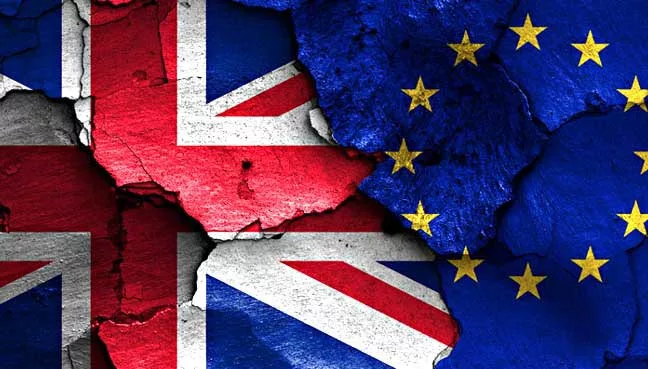For quite a long time you must be hearing about Brexit all over the place. Every intellectual talking about it and every now and then TV channels are reporting Brexit. This is so complicated that we have seen 2 British Prime ministers resign and leave office. So many debates on this topic and yet many of us don’t know what it is. So let’s not complicate it further and discuss what actually Brexit is and how it’s going to affect the world economy.
Brexit, meaning British exit, is the withdrawal of the United Kingdom from the European Union, EU. Following a June 2016 referendum, in which 51.9% voted to leave, the UK government formally announced the country’s withdrawal in March 2017, starting a two-year process that was due to conclude with the United Kingdom withdrawing on 29 March 2019. The UK parliament already voted thrice against getting out of the European Union and the decision has been extended twice. What is the reason for them to exit the European Union and why they formed an alliance in the first place?
Originally formed in 1957 with the treaty of Rome some European countries formed an alliance and created the European Economic Community (EEC). The idea of the European Union was to have peace in the region and form a political and economic union. After two consecutive world wars, European integration was seen as an antidote to extreme nationalism which devastated the whole of Europe. In 1973 the United Kingdom decide to be a part of the EU. The European Union was formally introduced when the Maastricht Treaty—came into action on 1 November 1993.
The idea was pitched by Robert Schuman, the former prime minister of France.
He said, “Europe will not be made all at once, or according to a single plan. … The solidarity in production thus established will make it plain that any war between France and Germany becomes not merely unthinkable, but materially impossible.”
The European Union is formed of 28 countries. On 23 June The UK holds a referendum on whether to leave the European Union. 51.9% of voters vote to leave. Most of the votes in preference to leaving came from England and the rest of 48.1% came from Northern Ireland, Wales, and Scotland. As the results came in, the demographics showed that the older generation was in support of leaving the EU while the Millenials voted to stay.
The Pros of staying
The most important benefit is the Freedom to live, travel, and work anywhere in Europe. As a citizen of any European Union country, you have these opportunities. But once the UK decides to leave the EU they will have to give up this lucrative offer. Also, the UK citizen currently residing and working in other countries will have to face problems because it is undecided what to happen to them. This is one of the important concerns that people have.
Many EU companies are currently headquartered in the UK. Meaning they will eventually leave the UK once Brexit is done. This will affect so many jobs in the UK and there will be a dramatic change in their economy.
The European Union collectively has the 3rd largest military in the world. But if the UK leaves the EU they won’t be getting any assistance from the European Union.
The Cons of staying
The EU is a single market in which imports and exports between member states are exempt from tariffs and other barriers. Services, including financial services, can also be offered without restriction across the continent. The consequences of Brexit for businesses that took advantage of these freedoms were always a matter of debate and conjecture.
Being a member of the EU, the United Kingdom is unable to create an economy of its own. They have to go through the EU every time they have to do business with any other country. Once they exit the EU they can do business separately with any countries without having any restrictions from the EU which might help them shape their own economy in the long run.
Because of being part of the European Union, they are forced to take immigrants. Under EU law, Britain could not prevent a citizen of another member state from coming to live in the UK, and Britons benefited from an equivalent right to live and work anywhere else in the bloc. The result was a huge increase in immigration into Britain, particularly from eastern and southern Europe. As the European Union offers the right to choose to travel, work and live anywhere in Europe, immigrants living in other European countries can eventually go and live in the UK.
Brexiteers argued that leaving the EU would result in an immediate cost-saving, as the country would no longer contribute to the EU budget. In 2016, Britain paid £13.1bn, but it also received £4.5bn worth of spending, said Full Fact, “so the UK’s net contribution was £8.5bn”.
What was harder to determine was whether the financial advantages of EU membership, such as free trade and inward investment, outweighed the upfront costs.
As the new British Prime Minister Boris Johnson comes into office with his hard-hitting speeches supporting Brexit, the world is getting ready to see what happens next. The next voting was supposed to be held on 31 October but we think we need to wait for a little more as the theatrical continues.





